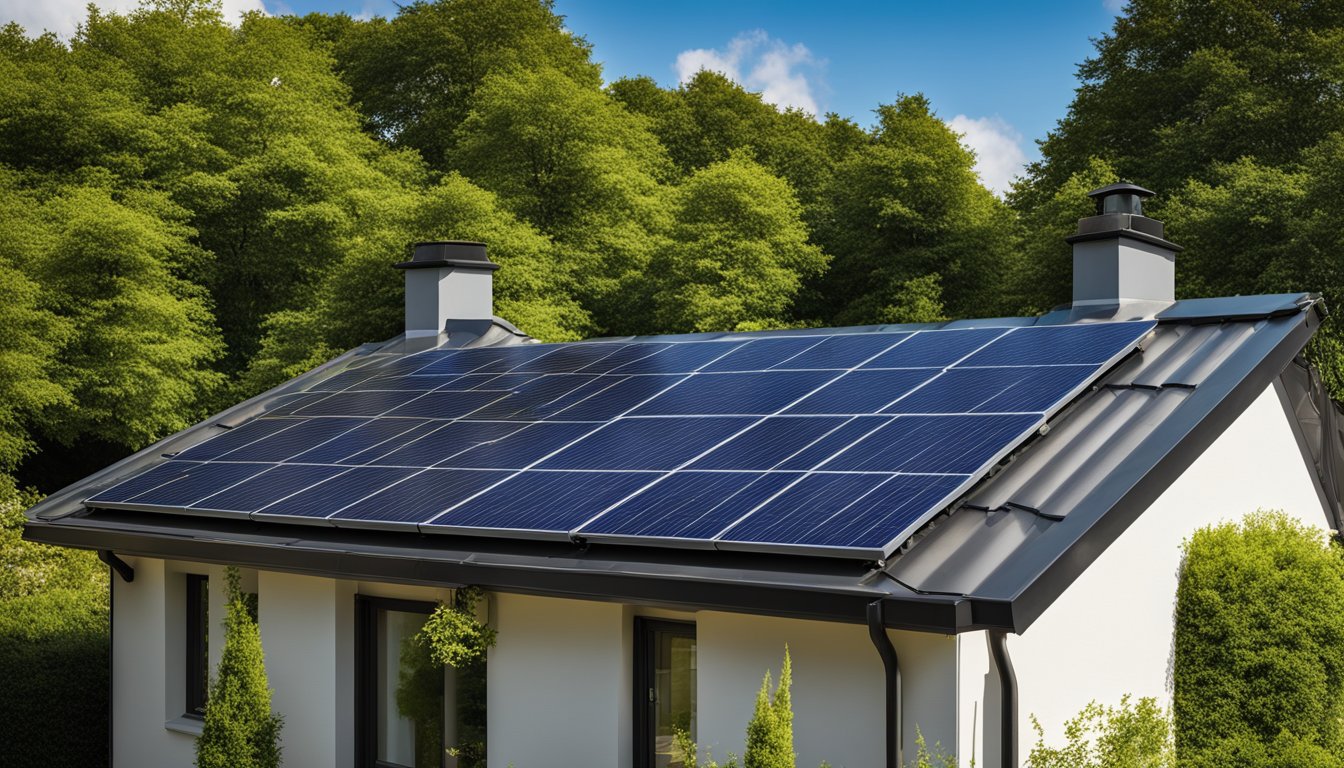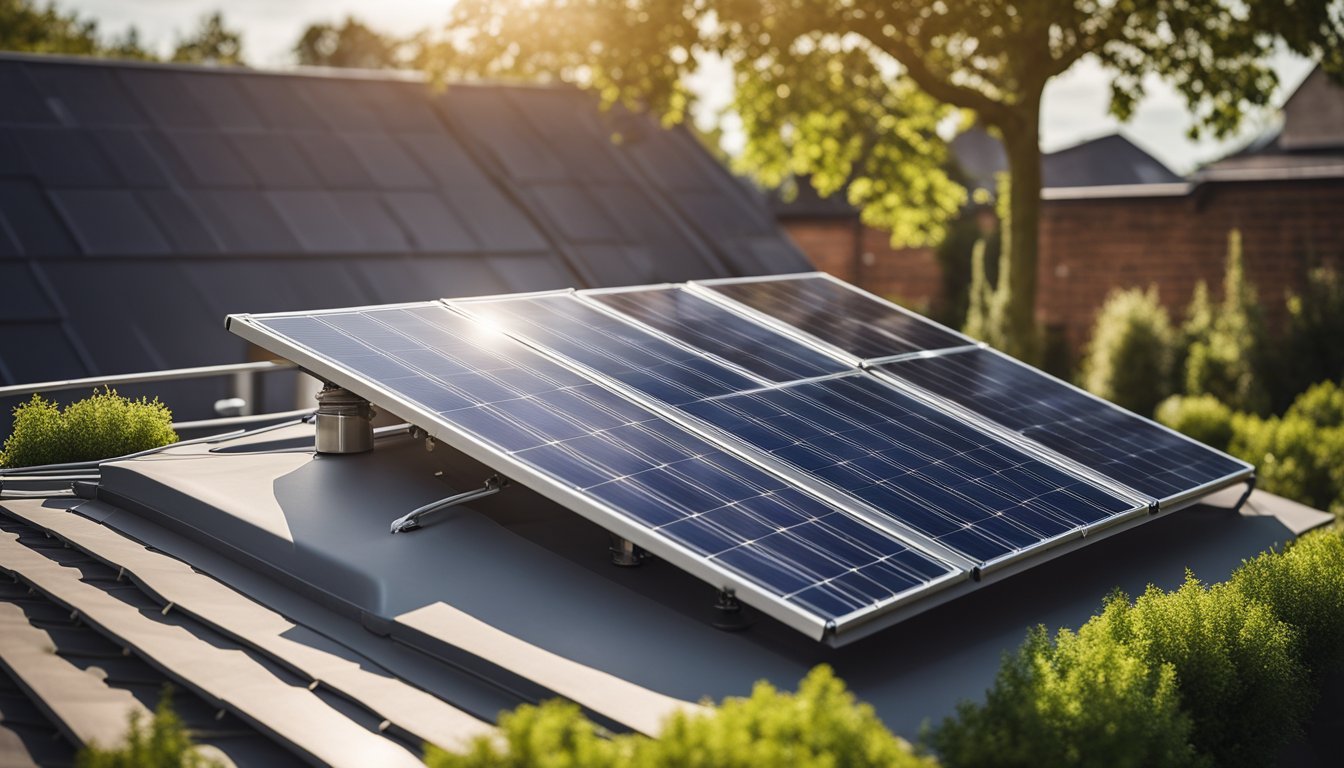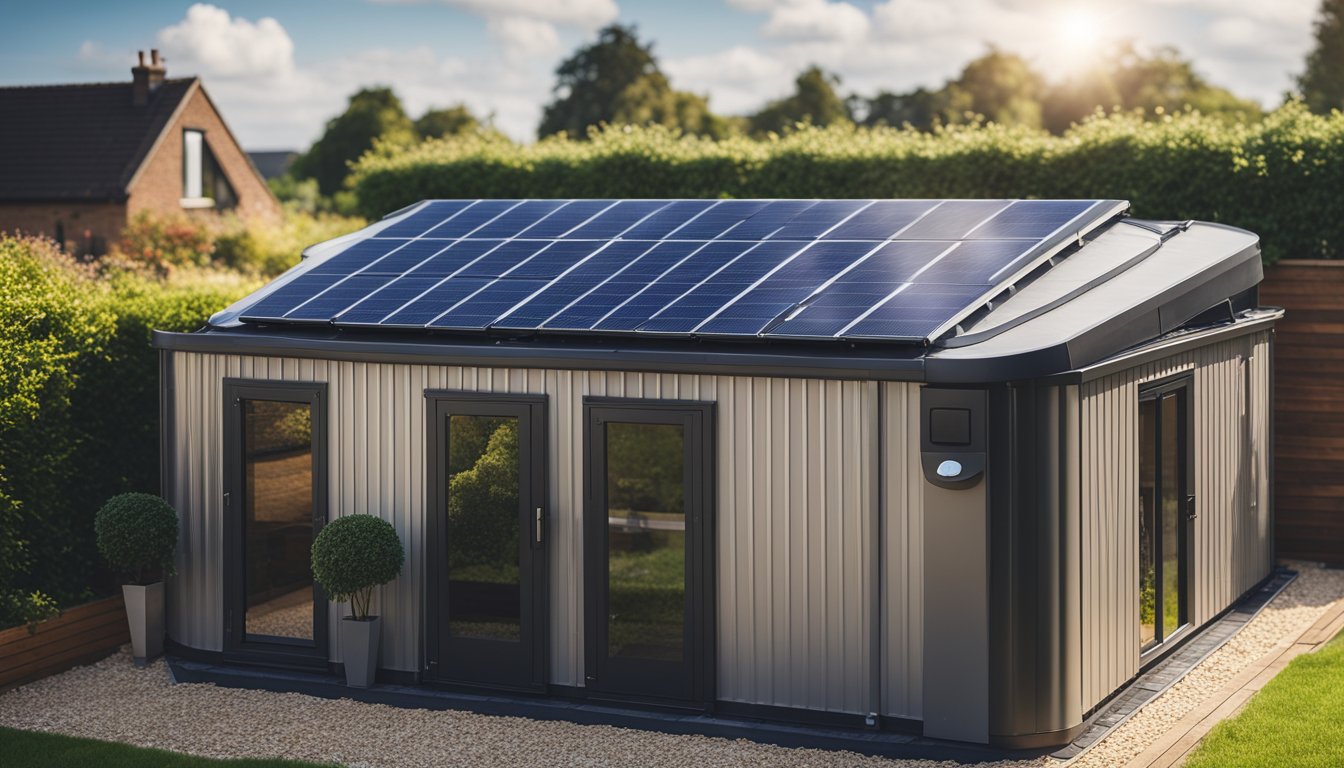Late updated: 27 Apr 2025 08:04
Written by: Eleanor Hartman
Sustainable Water Heating Alternatives For UK Homes: A Guide to Eco-Friendly Solutions
Transitioning to sustainable water heating in UK homes not only lowers our environmental footprint but also provides long-term savings. With climate change becoming an undeniable reality and energy costs on the rise, it's vital to consider more eco-friendly water heating alternatives. From solar thermal systems to heat pumps, various technologies offer efficient and renewable solutions to meet our heating needs.

In this blog post, we'll explore these alternatives, highlighting how they not only reduce reliance on non-renewable energy sources but also offer a practical approach to achieving energy independence. Our focus is on providing clear and concise information to help you make informed decisions about upgrading your home heating systems. We aim to provide insights into each technology, making it easier to assess which option best suits your home and lifestyle.
Key Takeaways
- Renewable heating technologies offer eco-friendly solutions.
- Heat pumps and solar systems reduce energy costs effectively.
- Sustainable options promote energy independence for UK homes.
Understanding Sustainable Water Heating Alternatives
As we focus on sustainable heating methods, it is crucial to examine alternatives to traditional systems. Our exploration covers the transition away from gas and oil boilers, the mechanics of sustainable systems, and the impact on energy efficiency and carbon reduction.
The UK’s Transition from Gas and Oil Boilers
The UK is actively moving away from reliance on gas and oil boilers, driven by environmental and policy pressures. Fossil fuels have been the mainstay of home heating, but they are no longer viable for long-term sustainability. Government regulations are being updated to encourage homeowners to switch to low-carbon alternatives.
This transition is not just a policy-driven shift. Many residents are recognising the potential savings in energy bills and the positive impact on their carbon footprint. As we adopt renewable energy sources, the market for alternative heating methods is expanding rapidly. Homeowners now have access to a variety of systems that offer greener alternatives without sacrificing comfort.
How Sustainable Water Heating Works
Sustainable water heating relies on systems that use renewable energy or operate more efficiently than traditional boilers. Heat pumps, for instance, extract heat from the air or ground, converting it into warmth efficiently. Solar water heaters use solar panels to capture sunlight, a method that directly diminishes the use of electricity or gas.
These systems can drastically reduce energy bills, as they consume less fossil fuel. Moreover, they require specific conditions for optimal performance, such as the right climate for solar heaters or adequate space for heat pumps. Understanding these requirements is key to maximising the benefits of these systems.
The Role of Energy Efficiency and Carbon Reduction
Energy efficiency in domestic heating systems is more than just a catchphrase; it's a necessity. Sustainable water heating systems generally offer improved efficiency over their traditional counterparts. This means they provide the same level of comfort while using less energy, leading to cost savings. By decreasing energy consumption, we also reduce the emissions of greenhouse gases.
Our carbon footprint is a critical measure of environmental impact. Through the adoption of systems like solar thermal and efficient heat pumps, we can contribute to significant carbon reductions. As technology improves, these systems will become even more effective, helping us meet environmental goals while maintaining our standard of living.
Modern Water Heating Technologies for UK Homes

In the pursuit of reducing carbon footprints and enhancing energy efficiency, UK homeowners have increasingly turned to modern water heating technologies. These systems offer innovative solutions like heat pumps, electric options, and smart controls to maximize energy savings while integrating with renewable sources.
Air Source Heat Pumps: Installation and Efficiency
Air Source Heat Pumps (ASHPs) are one of the most promising technologies for sustainable heating. They extract heat from the outside air, even in low temperatures, and transfer it inside to heat water and space. Installation involves placing an outdoor unit with a fan and a heat exchanger.
The process is generally straightforward; however, it requires sufficient outdoor space. Although initial costs can be high, ASHPs are known for their efficiency, delivering more energy than they consume. Pairing them with well-insulated homes optimizes their performance, making them a viable alternative to conventional boilers.
Ground Source Heat Pumps and Heat Exchangers
Ground Source Heat Pumps (GSHPs) use the stable underground temperature to provide heating. This system requires more extensive installation than ASHPs, involving the placement of ground loops to extract thermal energy. The heat exchanger then transfers this energy to the heating system.
It's crucial to have a suitable location and soil type for effective installation. The efficiency of GSHPs is among the highest of any heating system, making them a long-term investment. With reliable performance in all weather conditions, they are an excellent choice for consistent hot water supply and space heating.
Electric and Infrared Heaters as Alternatives
Electric heaters provide an efficient and straightforward heating solution. Modern models can be wall-mounted or portable, providing flexibility for various applications. Infrared heaters offer an innovative approach. They work by heating objects and people directly, rather than the air, leading to immediate warmth.
These systems have low installation costs and require minimal maintenance. While electricity costs can be high, the efficiency and adaptability of electric and infrared heaters make them a valuable option for smaller spaces or supplemental heating. Users should consider integrating them with renewable energy to enhance sustainability.
Integrating Renewable Energy Sources With Central and Underfloor Heating
Utilising renewable energy sources like solar panels in conjunction with central and underfloor heating systems can dramatically reduce energy consumption. Solar thermal systems are efficient at heating water, complementing heat pumps and boilers.
Connecting these systems with central heating can provide sustainable heating throughout the home. Underfloor heating benefits greatly from low-temperature heat sources like heat pumps. By spreading warmth evenly, this system can enhance comfort while reducing overall energy consumption—making it an attractive option for modern homes.
Smart Controls and Home Insulation for Maximum Energy Savings
Smart controls play a vital role in optimising heating systems. Learning thermostats adjust heating based on occupancy and habits, providing precise control over energy use. These systems can be integrated with smartphones or home automation systems for remote accessibility.
Efficient home insulation is critical to maximizing the potential savings from modern heating technologies. High-quality insulation reduces heat loss, allowing heating systems to operate at their best. The synergy of smart controls and insulation ensures a comfortable living environment with reduced energy costs.
Government Grants and Retrofit Incentives
The UK government offers various incentives to encourage the adoption of sustainable heating technologies. Schemes like the Boiler Upgrade Scheme and other grants support retrofit projects, making it financially viable to transition from traditional systems.
These incentives can significantly offset the initial costs of installing heat pumps, solar panels, and other renewable technologies. By reducing upfront expenses, these grants encourage more homeowners to consider sustainable options, promoting wider adoption of clean energy solutions in the residential sector.
Retrofitting Existing Heating Systems
Retrofitting existing heating systems can enhance efficiency and sustainability without a complete system overhaul. Integrating new technology with current setups, such as combining a heat pump with an existing boiler, updates the system while maintaining functionality.
It's important to evaluate the current system's compatibility with new components. Retrofit solutions vary in complexity and cost but can often provide a cost-effective way to improve performance. Retrofit projects allow homeowners to transition to sustainable heating progressively, reducing both environmental impact and long-term energy expenses.
Frequently Asked Questions

In the pursuit of sustainable water heating for UK homes, several key questions arise regarding the most effective eco-friendly solutions, cost-effectiveness, and adaptability to older houses. Here, we explore these inquiries, aiming to provide clarity and insight into making informed choices.
What are the top eco-friendly water heating solutions available in the UK?
The UK offers a variety of sustainable water heating solutions. Popular choices include solar water heaters, which use solar panels to harness energy directly from the sun. Heat pumps, particularly air-source and ground-source models, are also effective as they transfer ambient heat rather than generating it from scratch.
How cost-effective are renewable water heating systems for British homes?
Renewable systems can reduce energy bills in the long term. While the initial investment tends to be higher, options like heat pumps and solar water heaters often benefit from government incentives that can offset upfront costs. Over time, these systems typically result in substantial savings.
Can older UK houses be fitted with environmentally friendly heating systems?
Yes, older homes can indeed be adapted for sustainable heating solutions. It’s crucial, however, to assess factors like insulation and existing heating infrastructure. Retrofitting might require additional measures such as enhancing thermal insulation to maximise the efficiency of eco-friendly systems.
Which type of heat pump provides the best efficiency for UK households?
Among the various types, ground-source heat pumps are noted for their high efficiency, as they utilise stable underground temperatures. That said, air-source heat pumps are more accessible and easier to install, especially in urban areas. Both types are efficient, depending on specific needs and conditions.
Which technology offers the lowest carbon footprint for home water heating in the UK?
Solar water heating generally boasts the lowest carbon footprint since it relies almost entirely on solar energy. While heat pumps also significantly reduce emissions, the extent varies based on the electricity grid’s mix. Improvements in home insulation can further enhance the sustainability of these systems.
Are tankless water heaters a viable green alternative for UK residents?
Tankless water heaters, also known as on-demand or instantaneous hot water systems, save energy by heating water only when needed. They eliminate standby heat loss associated with traditional storage tanks. While their impact might not match solar or heat pumps, they remain a noteworthy improvement from standard systems.